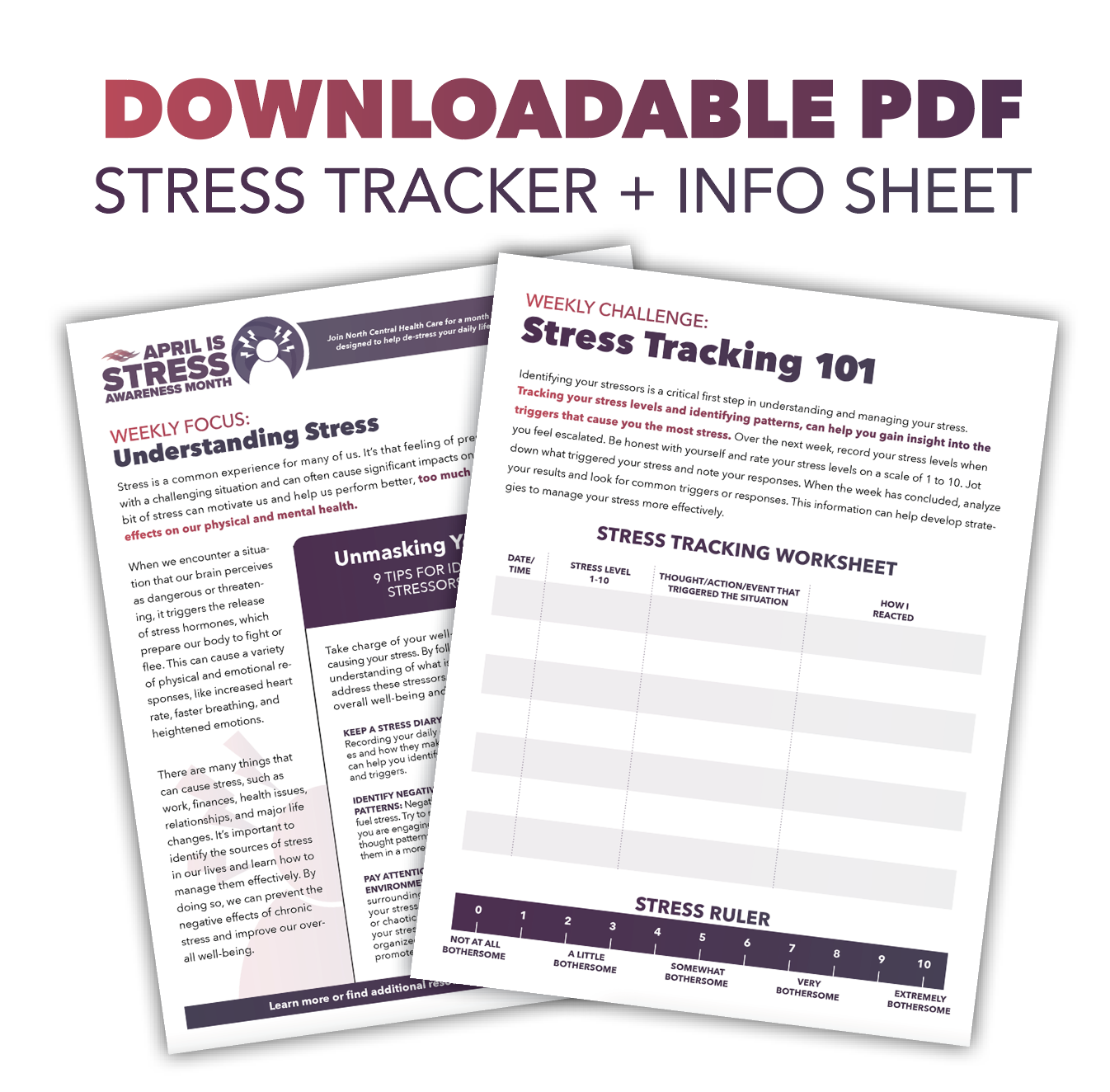Week One: Understanding Stress
Week One:
Understanding Stress
Stress is a common experience for many of us. It’s that feeling of pressure or tension that comes with a challenging situation and can often cause significant impacts on our daily lives. While a little bit of stress can motivate us and help us perform better, too much stress can have negative effects on our physical and mental health.
When we encounter a situation that our brain perceives as dangerous or threatening, it triggers the release of stress hormones, which prepare our body to fight or flee. This can cause a variety of physical and emotional responses, like increased heart rate, faster breathing, and heightened emotions.
There are many things that can cause stress, such as work, finances, health issues, relationships, and major life changes. It’s important to identify the sources of stress in our lives and learn how to manage them effectively. By doing so, we can prevent the negative effects of chronic stress and improve our overall well-being.
Unmasking Your Stressors:
9 tips for identifying key stressors in your life
Take charge of your well-being by understanding what’s causing your stress. By following the tips below, you can better understand what is causing your stress and take steps to address these stressors. By doing so, you can improve your overall well-being and lead a more fulfilling life.
Keep a stress diary:
Recording your daily experiences and how they make you feel can help you
identify patterns and triggers.
Identify negative thought patterns: Negative self-talk can fuel stress. Try to recognize when you are engaging in negative thought patterns and re-frame them in a more positive way.
Pay attention to your environment: Your physical surroundings can also impact your stress levels. Cluttered or chaotic spaces can add to your stress, while calm and organized spaces can promote relaxation.
Pay attention to physical reactions: Notice how your body reacts to different situations, such as tense muscles, headaches, or rapid heartbeat. These physical cues can help you recognize stressors.
Monitor your media intake: News and social media can be a significant source of stress for many people. Pay attention to how much media you consume and how it makes you feel.
Evaluate relationships: Take a look at the people in your life and how they make you feel. Negative relationships can be a significant source of stress.
